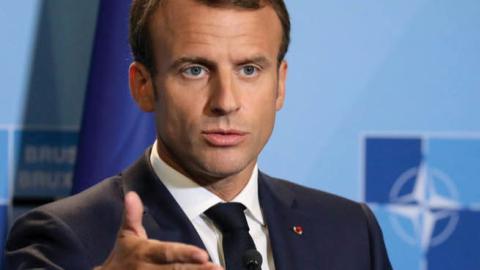NATO is brain-dead. So said French President Emmanuel Macron in an interview published last week.
He’s not wholly wrong. A generation after the collapse of communism, the Western alliance that won the Cold War is adrift and confused. The trans-Atlantic gap is wider than ever, and the fissures between Brexit-minded Britain, Gaullist France and an increasingly powerful Germany seem to deepen and grow from year to year.
Mr. Macron’s description of Europe’s current predicament is brutally frank. With the U.S. losing interest in NATO (a shift Mr. Macron believes predates the Trump administration), Europe can no longer count on American protection as much as it did in the past. Intensifying U.S.-China competition leaves Europe high and dry; neither China nor the U.S. seems particularly interested in what Europe wants or thinks.
In its own neighborhood, Mr. Macron believes Europe is almost helpless before rival powers like Russia and Turkey. Europe’s continuing failure to develop its own Silicon Valley means that the continent risks losing control of its own future. Dependent on American or Chinese tech giants, Europe won’t be able to guarantee the security of its own data or communications. Meanwhile, even as a rigid adherence to outdated ideas about fiscal austerity limits the growth of the eurozone economies, the EU has overstressed the market side of the European project, and paid too little attention to the concept of “community.”
Read the full article in Wall Street Journal


















